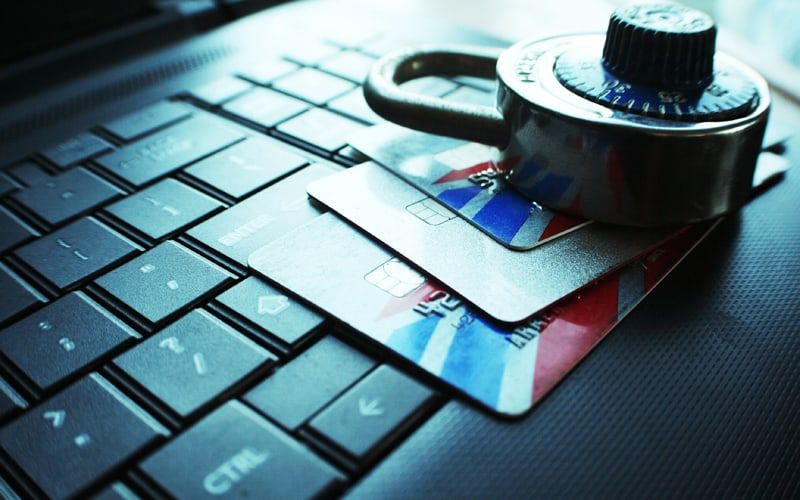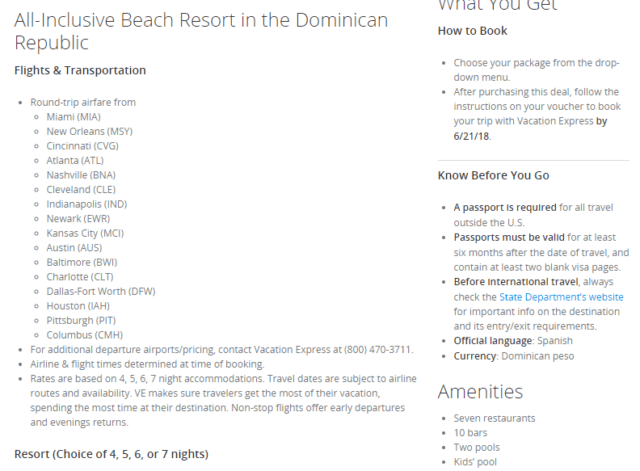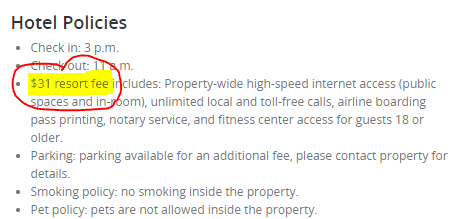Is Groupon Safe? How to Spot Fraud + What Not to Buy on Groupon
By Corbin HartwickUpdated on August 19, 2024

Tech Life Unity independently reviews everything we recommend. When you buy something after clicking on a link to another website, we may earn a commission. Learn More
Whenever a website offers great items at great prices, it can be hard to believe that it’s true (we all know the saying: if it sounds too good to be true, it probably is). People may have concerns about websites like Groupon, wondering if they are secure or legitimate, especially when you are asked to enter your credit card information.
However, Groupon.com is a very useful website that can get you great deals on products, events, gatherings, restaurants, spas, gym memberships, and so much more. If you want the low-down on how safe it is and where fraudulent possibilities lie, we’ve got you covered. In this article, we’ll go over the following:
- Is Groupon safe to use?
- How legit and reliable are Groupon coupons?
- 3 things you should know before using a coupon website
- 5 easy ways to spot fraud on Groupon
- Who is responsible: Groupon, or the business?
- How to contact Groupon customer service if you buy fake coupons
- When a Groupon deal isn’t really a deal
- 3 risky items you should never buy on coupon sites
Is Groupon safe to use?
In general, Groupon is safe to use due to the fact that businesses need to partner with the site to post an offering, and if there was any issue, after a handful of people noticed it, any fraudulent offers would be removed immediately. However, sometimes users pay for fraudulent offers posted on the site.

Groupon is secure because they look into the businesses they partner with. However, there’s always room for malicious intent on almost any website on the Internet – like this man who earned over $3.6 million from people through fake Groupon and Zulily.com scams. The best thing to do is read the fine print, and do a quick search for a website for the business or service you’re receiving a discount for.
How legit and reliable are Groupon coupons?
Groupon is definitely a legit company. It was founded in 2008, and since then, has grown to serve almost 50 million active users. Very few people have issues using these online coupons due to the fact that as soon as a fraudulent offer is revealed by one user, it would be removed instantly.
It’s not often that scams are revealed, so the coupons are very reliable. But occasionally, things such as businesses claiming they are always booked when you try to use your coupon occur. So make sure you read the fine print to understand what exactly it is you are purchasing.
3 things you should know before using a coupon website

- Read the fine print – We’ve mentioned this many times above, but it’s very important. You won’t get your money back if you didn’t follow the rules.
- Redeeming can be tricky – These offers can save you a lot of money, but businesses don’t just give things away for free. Most offers can only be redeemed at off-peak times, or even during certain times of the year.
- A deal isn’t always really a deal – Sometimes it may seem like you’re saving you a lot of money, but you aren’t. Just because a deal isn’t ‘fraudulent’ doesn’t mean it’s really saving you money.
We’ve got more info on how to tell the difference between a good deal and shameless self-promotion for a business below. Here are five helpful tips for knowing whether the offer you’re interested in on Groupon is legitimate.
5 easy ways to spot fraud on Groupon
1. The number of coupons already purchased is less than 10
One way to tell if Groupon is trustworthy is by looking at the number of people who have already bought the offer you are considering. If the numbers are very small, say 10 people or less, this may be cause for concern. If it’s an offer for a nail salon in your 200-person small town, then yes, maybe there won’t be a ton of people jumping at the opportunity.

But if you’re looking at a deal that seems to good to be true and no one else is taking advantage, there’s probably a reason why. A good general rule is to stick to popular offers that dozens or hundreds of other people have already purchased. It’s a pretty safe bet that if that many people have purchased it and you can still see the offer on the site, it’s a legit offering.
2. The business has an unprofessional-looking website
As we mentioned above, a great tactic to spot fraud is to look for a website for the business offering you a discount. If it looks like it was thrown together in an hour with a drag-and-drop website builder, then it’s probably cause for concern. If you can see a professional-looking website with clear contact information, then you’re probably in the clear.
3. The business’s information is inconsistent with what you see in the offer
If you find while exploring the site that a few things don’t add up, you might want to stay away. Try looking for information that is specifically pertinent to how you would use this coupon. For example, if the offer claims it’s only valid on Sundays while the website shows the business is closed on Sundays, then you’re looking at a fake offer.
4. It’s hard to contact the business to ask questions
If you can’t find an email address or phone number to contact the business at, chances are they are intentionally trying to prevent you from looking into them. It’s always good practice to send an email asking about the validity of the voucher if the fine print confuses you, or if you have any cause for concern about the legitimacy of the offer.
5. The offer’s fine print is excessively long or confusing

If the fine print is overly long, and just as convoluted, then you probably want to stay away. In general, Groupon offers are known for having a lot of fine print. But it’s supposed to be for your benefit, so you know exactly how and when you can use the coupon, and under what conditions you can’t. If the fine print makes no sense, or essentially prevents you from ever using the coupon in a reasonable way, then you probably shouldn’t buy it.
Now you know how to spot the fraud, but what if you’ve already come across an issue with something you purchased? Here’s what to do.
Who is responsible: Groupon or the business?
If you are having an issue with something you paid for on Groupon, you might be wondering who is supposed to help you. Who do you go to the get customer service? For this question, the answer is simple: it depends on how much work you have done to try to resolve the issue directly with the business that offered something to you. Here is how to know who to go to:
The business is responsible when…
- You have just found out you have an issue, or suspect an offering might be fraudulent
- You have paid for something, and later realized it wasn’t legitimate
- You attempt to use a voucher and it is rejected
Groupon is responsible when…
- You have already contacted (or attempted to contact) the business that had the listing
- You have received no response from the company you are trying to deal with
- The business you contacted responds, but declines any responsibility
- A business is using Groupon for something illegal
The bottom line is that essentially, you need to show Groupon customer service that you already made an effort to contact the business directly to resolve your issue. If you contact them, the first thing they will do is tell you to contact the business directly – no matter what is at stake for you. Make sure you make a reasonable attempt to do this first.
If you need some assistance, here’s how to contact Groupon to solve your problem.
How to contact Groupon customer service if you buy fake coupons
To get in touch with Groupon, go to Groupon.com/customer_support and click About an Order. Fill out the forms to send an email describing your specific problem. Someone will get in touch with you to ask you further questions, or solve your problem.
Additionally, Groupon customer service can be reached in the following ways:
Phone: 1-877-788-7858 | Monday-Friday 9 AM to 5 PM Central
Email: support@groupon.com
If you need some more detailed instructions, this step-by-step tutorial on how to contact Groupon can help you.
When a Groupon deal isn’t really a legitimate deal
Here are a few surefire ways to tell if what you’re looking at on Groupon stands out as a 100% waste of time fake deal:
- Services are limited
- You can’t use it almost any time, or during reasonable times of the day
- You have to use the voucher within an unreasonable amount of time after paying for it (30 days or less)
- You have little freedom when booking to use your voucher
- The offer is combined with other business as well (ex. you have to spend $15 at three restaurants to get your 10% off)
- The offer is something standard that is always offered by the business (ex. a 15% student discount)
- The voucher is a disguise for a regular sale (ex. 10% off cosmetics on Wednesdays)
3 risky items you should never buy on coupon sites
Now you know how to get the deal, but there are still a handful of things you should never waste your time with on online coupon websites. In the time it’s been around, these three things especially have been known to never work out in favor of the consumer.
1. Hotel rooms

These are notorious for making the users’ life extremely difficult. Hotels typically only offer things on Groupon last-minute to fill up unbooked rooms, so you are already starting with a very limited voucher in terms of timing.
Add on top of that a long list of restrictions, quite often including a limit of only one person in one room. As soon as you get to the website and start adding on additional rooms or people, you’ll see the prices jet right back up. You’re a lot better off looking for hotel deals with sites like Expedia, or saving money with property rentals on sites like Airbnb.
Don’t waste your time with the hassle of trying to make these offers work, unless you’re a single traveler trying to be economical. Check out the pros and cons of Groupon travel vouchers here.
2. Electronics
These items are known for generally being offered as items already on sale by the business, so you aren’t really getting a deal. In general, you can find electronics priced far lower on websites like Newegg.com or Amazon.com. This article shows that sometimes the deals can be appealing on items like a fitness tracker, but you have limited rights once you buy it if you’re unsatisfied.
3. Small products or physical items
Physical products have been open to some scrutiny simply because they just aren’t often cost-effective. Bigger online stores, including places like eBay.com where you can bid on items just offer better value for your money, and are usually far more reliable. If you’re looking for a deal, you can often find one using eBay Best Offers.
In general, stay away from anything with a long list of restrictions, and you should be all set. If you want some more info on how Groupon works, you can check out our free course on how to use Groupon.